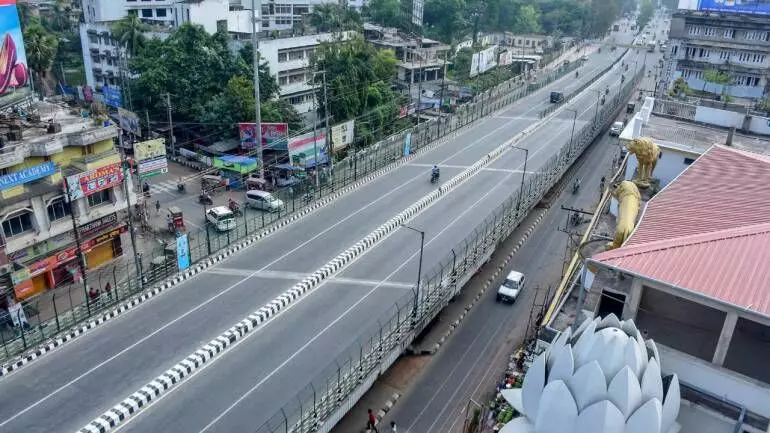
General strike should be a wake-up call
text_fieldsImage only for representation
The All-India strike to last from midnight of Wednesday until midnight of Thursday, is expected to bring the country to a halt. The strike has been called for by ten labour unions including INTUC, AITUC, CITU, HMS and AICTU, employee unions of insurance-banking-railway sectors and central and state government employee . The only exempted sectors will be as usual essential services. If a shutdown strike or bandh is to be successful, it should be complete in all states alike which however seldom happens; only in states where labour unions are active do strikes become total. Although 19 national shutdown strikes were called for since 1991, none of them had brought people's lives to a complete halt across the entire country. This time too there is a major abstainer BMS, the labour union of the BJP which rules at the Centre and in several key states. But that alone does not make the strike call irrelevant or unnecessary. It is quite natural for labourers, farmers and common people, whose livelihoods have been put under stress, to take to the protest path in a threatening socio-economic situation of the country entirely steered by the Modi-Amit Shah duo that has veered far off the country's secular democratic socialist track and when the economy is pledged to multinational monopolies and corporates.
The prime minister had declared at the time of passing major 'reform' bills in the parliament earlier this year that the labour reform legislation would ensure labour welfare and stimulate the economy, but in effect it has proven to bring down the wages and weaken terms of employment of working class citizens. The first priority in those labour reforms was not job security, income security of workers or the protection of their rights, but instead the interests of corporates and employers. In states like UP, Rajasthan and Gujarat, employers got a green signal to raise the daily working hours from eight hours to 12 hours. The number of employees was curtailed to the minimum and security of work ceased to be a factor to consider. To compound the hardships, the agricultural reforms that followed turned out to be a further jolt to the farmers; that was what made the farmer agitation which had started in the Punjab swell into a nation-wide protest. In parallel, the liberalisation process that had started in early 1990's got intensified. The country also witnessed the picture of even profit-making state-owned enterprises being sold to big monopolies partly or in full. An example of the damaging offshoot of such sell-out can be seen in the fluctuations in petroleum prices: even when crude oil prices nosedived in international market, the petroleum product prices in India kept rising; this is not to be mistaken as intended to fatten the coffers of public sector companies, but, as plain enough any one, only to boost the profitability of private oil companies. The case of Air India, now up for sale, still begs takers, not due to dearth of aspirants, but only because a potential profiteering deal has so far remained elusive. Still the government will withdraw from the civil aviation sector by offering utmost benefits and concessions to private players. In Indian railways, the world's largest train network and employer, expeditious efforts are afoot to privatise it. The government is using the Covid situation as a favourable climate for this step too, as attempted in many other moves.
Thus what drove the labour unions to a nation-wide strike is an anti-humanitarian position that pushes India's youth to an abyss of unemployment and uncertainty with the government dipping its hands into the pockets of the working class. Together with that protest, the striking unions have also raised demands for monthly relief of Rs 7,500 to families outside the income tax bracket, allow 10 kg of food grains to the needy, give jobs for 200 days a year under national employment guarantee scheme and raise their wages. In a country where 20 to 30 crore people live below the poverty line, these demands are by no means excessive but only reasonable. The government is also bound to address the crisis of employment for the young men and women emerging from universities. If one asks whether the Indian economy is robust and stable for all this, the answer is that barring the setbacks of the Covid phase, the country has the capability to overcome the crisis provided far-sighted and responsible economic planning guides it and not wrong prioritites, wasteful expenditure and corporate appeasement. It may be hoped that the strike of November 26 will be helpful to draw the attention of central and state governments to such grave issues and thus act as a wake-up call to the ruling elite.






















